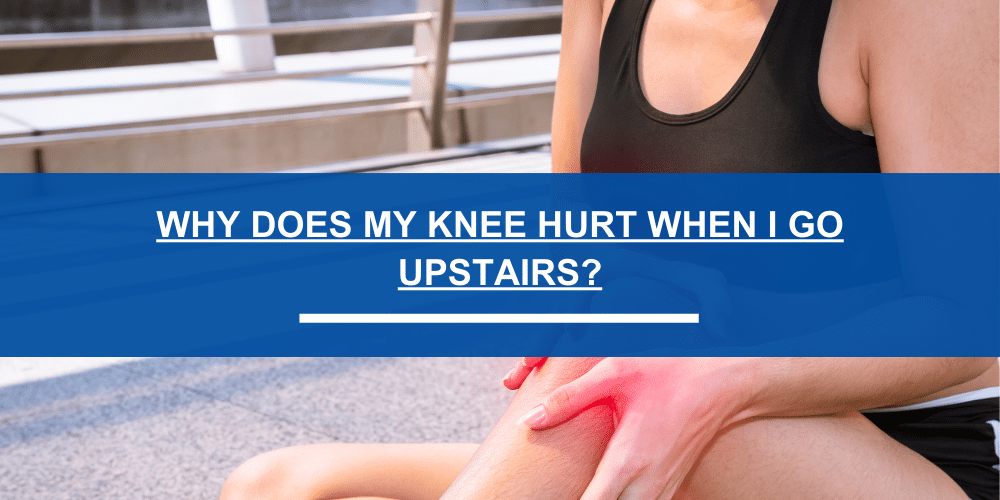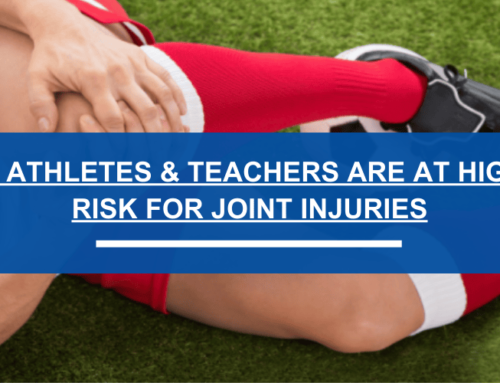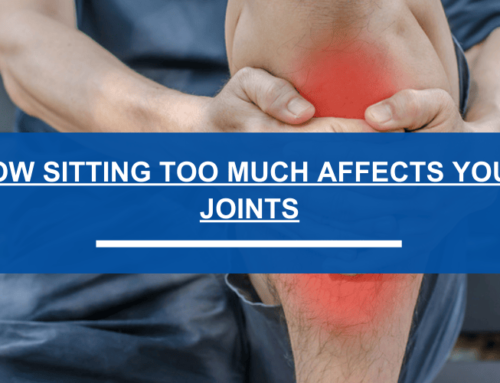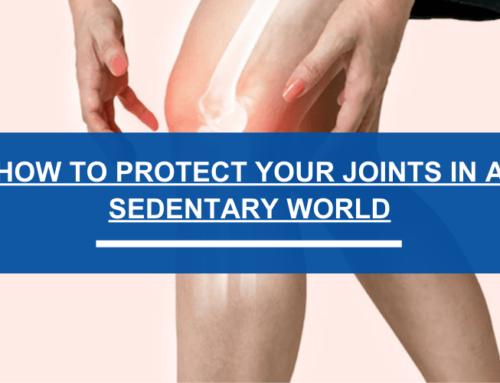Knee pain while climbing stairs is something many people experience, yet few take seriously. Often brushed off as a minor ache or attributed to age or overuse, this type of pain can be an early warning sign of an underlying condition that deserves attention.
Understanding the root cause of your discomfort can help prevent more serious injury and guide you toward effective treatment.
Common Causes of Knee Pain When Going Upstairs
1. Patellofemoral Pain Syndrome (Runner’s Knee): This condition is caused by irritation of the cartilage underneath the kneecap. It often affects runners and physically active individuals, but it can also impact people who sit for long periods or have muscle imbalances.
2. Osteoarthritis: As we age, the cushioning cartilage in our joints can wear down. In the knee, this leads to osteoarthritis, one of the most common reasons for chronic knee pain in adults.
3. Meniscus Tear: The meniscus is a piece of cartilage that acts as a shock absorber in the knee. Tears can occur suddenly, especially during twisting movements, or gradually over time.
4. Quadriceps Weakness: The quadriceps help stabilize the kneecap. Weak or underused quads can lead to poor alignment and added stress on the joint, especially when climbing.
5. Tight Hamstrings or IT Band: When the hamstrings or iliotibial (IT) band are tight, they pull on the knee joint and create misalignment. This results in discomfort during activities like stair climbing.
Why You Shouldn’t Ignore Knee Pain
That twinge you feel while walking up the stairs could be more than just soreness. Left unaddressed, minor knee pain can evolve into chronic conditions, joint degeneration, or even long-term mobility limitations.
Early diagnosis and treatment can significantly improve your outcome. A licensed orthopedic specialist or physical therapist can assess your pain, identify the underlying cause, and suggest the right mix of therapies.
Treatment Options
- Physical Therapy: Strengthening and stretching routines tailored to your condition can improve knee function and reduce pain.
- Anti-inflammatory Medications: NSAIDs like ibuprofen can reduce swelling and discomfort in the short term.
- Orthotics or Bracing: Custom shoe inserts or knee braces can help support proper movement patterns.
- PRP Therapy or Corticosteroid Injections: In more persistent cases, these treatments offer targeted pain relief and support healing.
- Lifestyle Adjustments: Weight management, low-impact exercise (like swimming or cycling), and improved ergonomics can make a huge difference.
When to See a Specialist
If you’re experiencing knee pain going upstairs for more than a few days, especially if it’s interfering with daily activities or getting worse, it’s time to consult a professional. Early intervention helps you avoid more serious complications down the road.
Interested in long-term relief?
Schedule a consultation to speak with our orthopedic team and discover the best treatment path for your knees.
FAQs
1. Why does my knee hurt when going upstairs?
Knee pain when going upstairs may be caused by conditions such as patellofemoral pain syndrome, osteoarthritis, or a meniscus tear. It’s often due to joint irritation or weakness in surrounding muscles, and it should not be ignored.
2. Is it normal to feel knee pain while climbing stairs?
Occasional mild discomfort may be normal, but persistent or worsening knee pain is not. It can indicate a structural or muscular issue that requires evaluation by a medical professional.
3. What are the treatment options for knee pain on stairs?
Treatment options include physical therapy, anti-inflammatory medications, bracing or orthotics, PRP therapy, and lifestyle changes. Early diagnosis improves recovery and outcomes.
4. When should I see a doctor for knee pain?
If your knee pain lasts more than a few days, worsens, or limits your ability to walk, it’s best to consult an orthopedic specialist. Ignoring the symptoms may lead to long-term damage.







